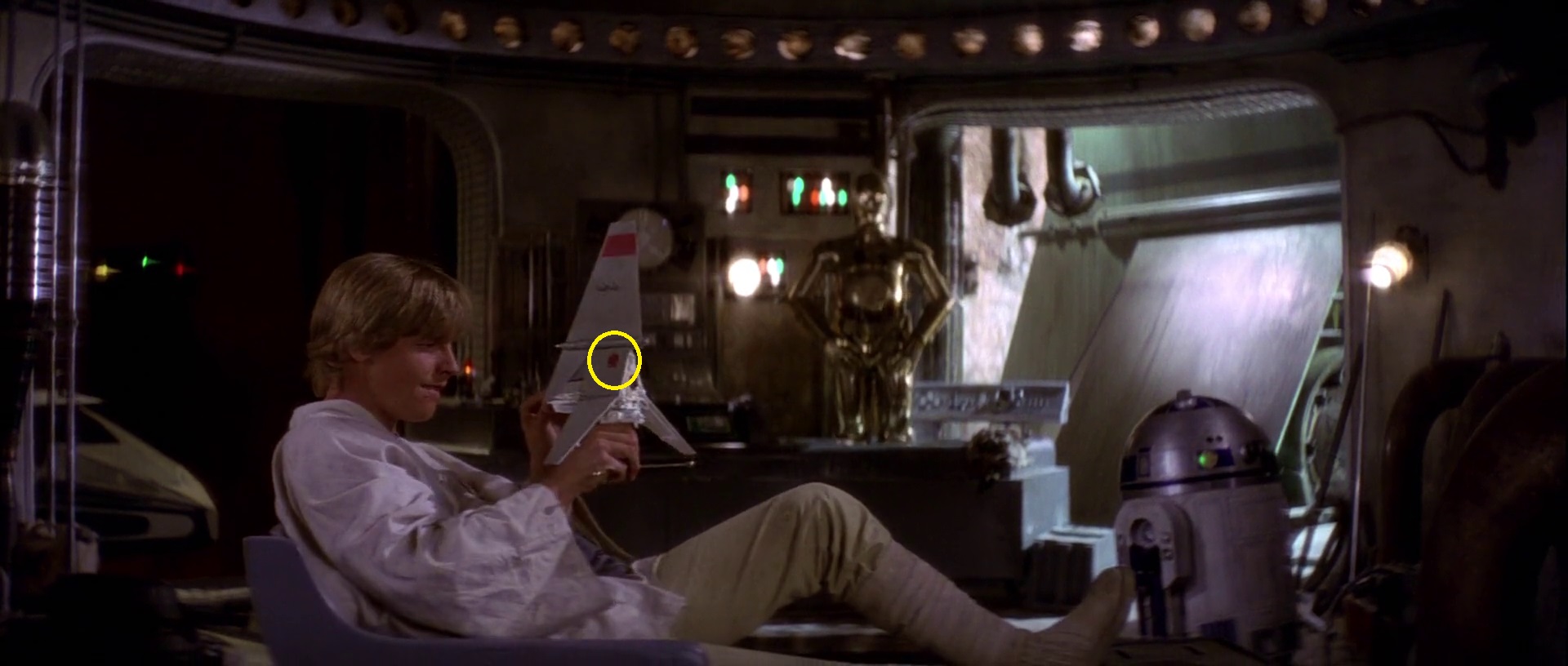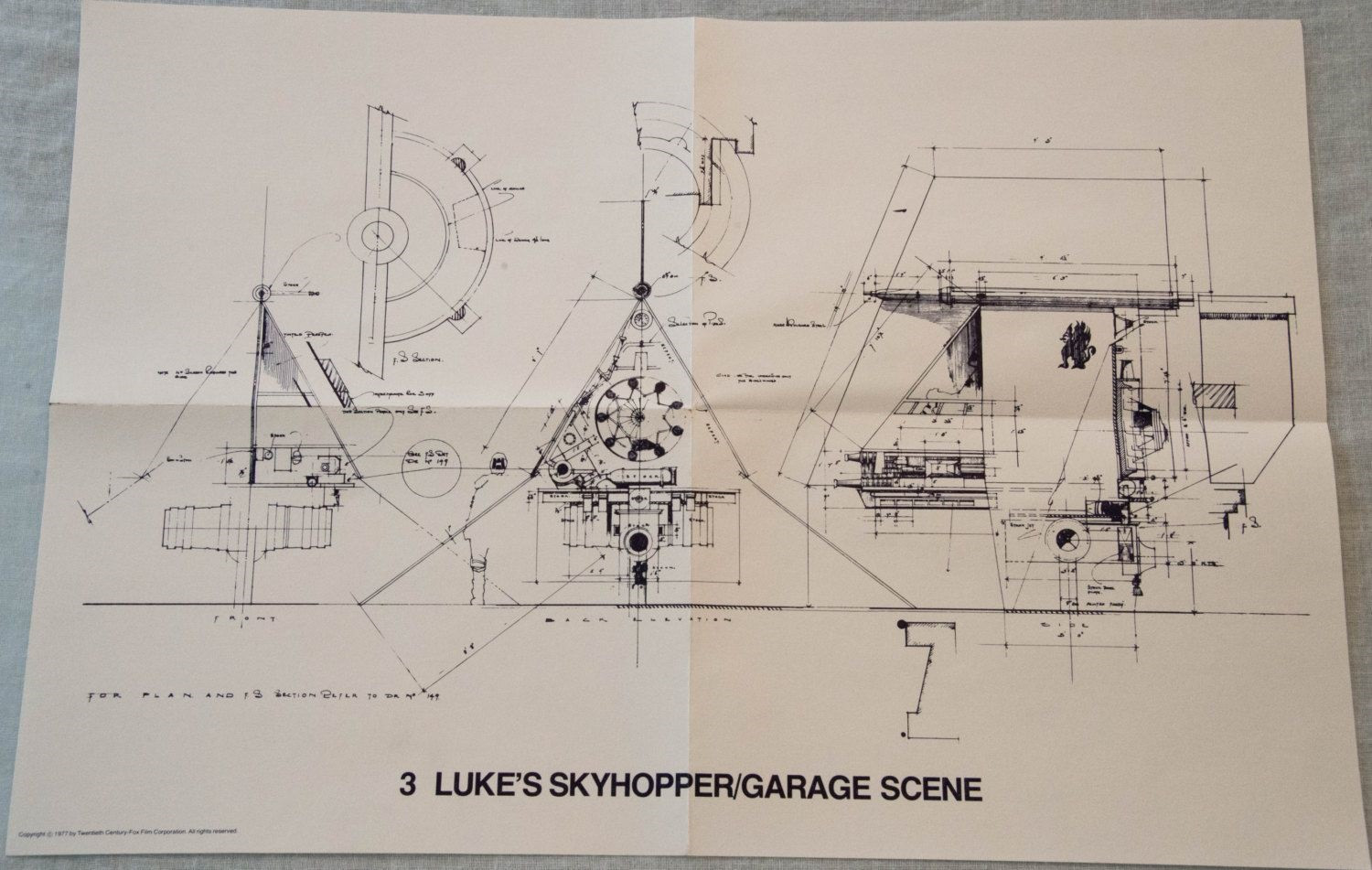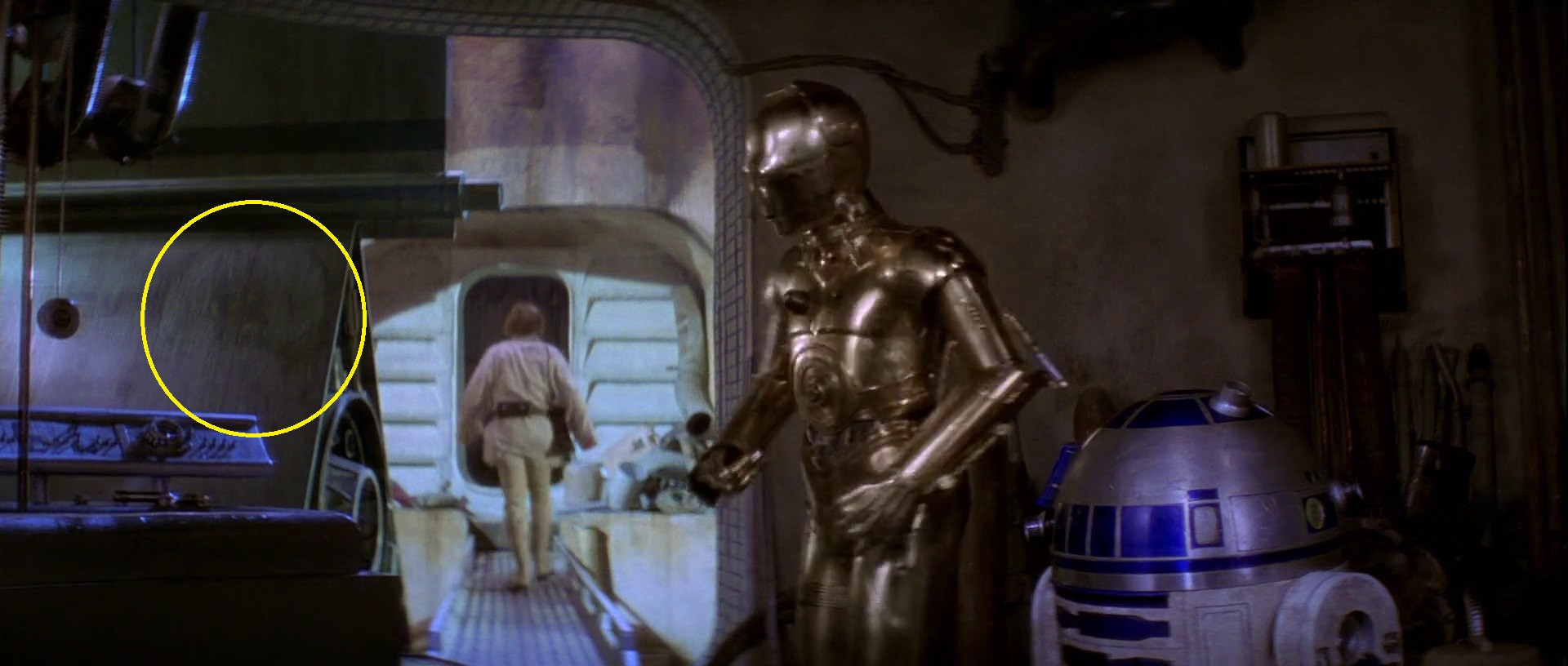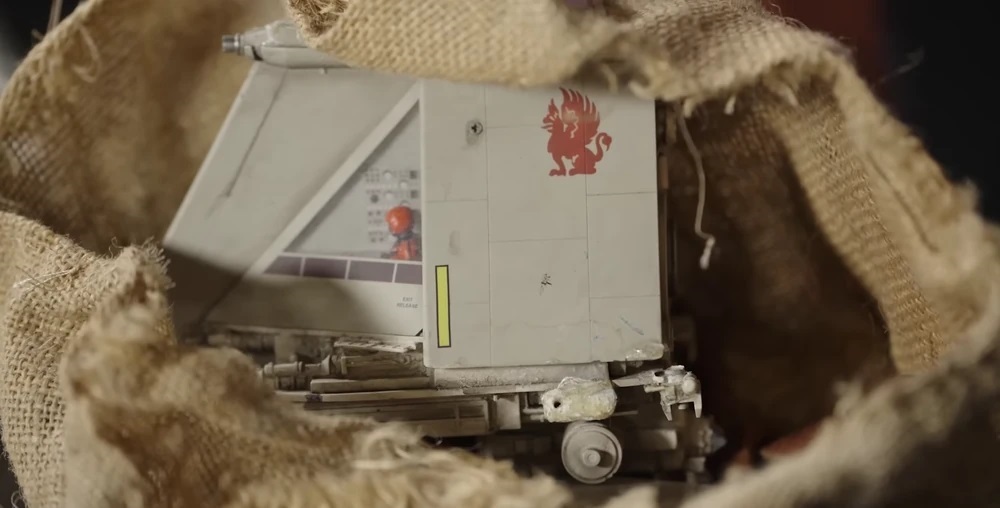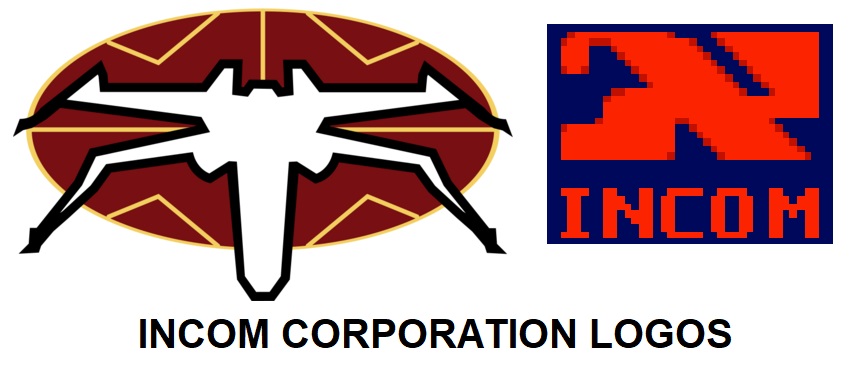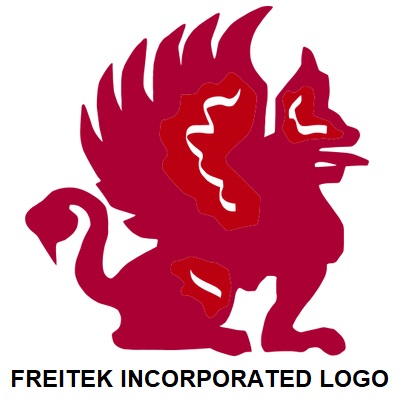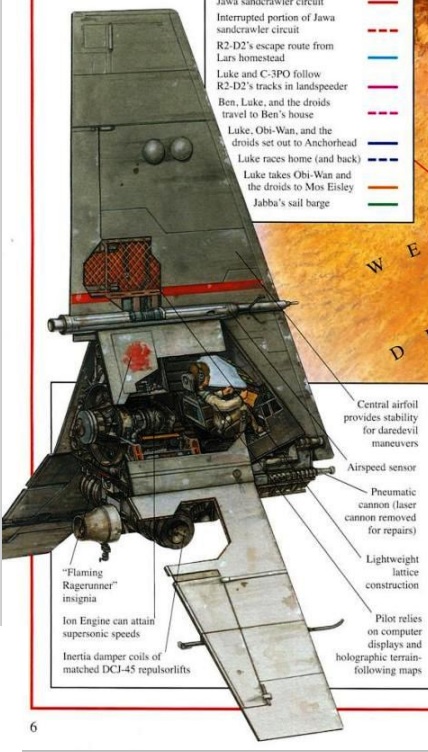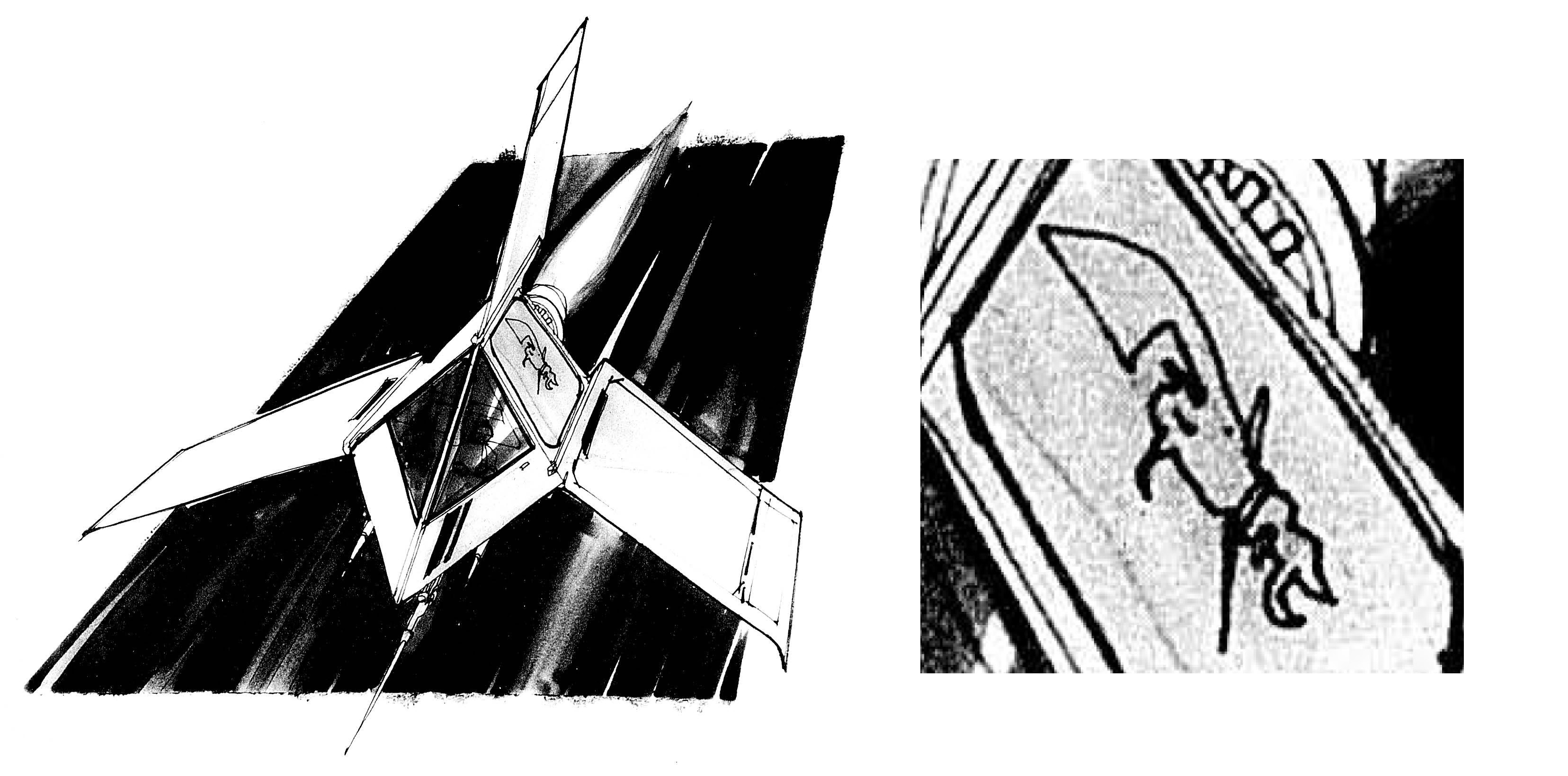In the garage scene of Star Wars: A New Hope (1977), we see Luke Skywalker playing with a model of his grounded T-16 Skyhopper. There is a tiny logo on the model that is difficult to notice.
The logo is more visible on the original Skyhopper concept blueprints (1977, 20th Century Fox).
The logo can also be seen ln the real T-16 in the background of the scene, but it is faded.
The toy prop used in A New Hope reappears in the TV mini-series Obi-Wan Kenobi (2022), with a clearer logo.
Given that the T-16 was built by Incom Corporation, I looked for Incom logos, which are not the same as the ones on Luke's model.
Interestingly, the logo of FreiTek Incorporated appears to be identical (flipped horizontally) to Luke's model, but FreiTek was founded four years after the Battle of Endor - in other words, 4 years after of the scene.
The DK's original edition Star Wars: Complete Locations (2005) depicts the logo and describes it as "Flaming Ragerunner" insignia.
The DK's updated edition Star Wars: Complete Locations (2016) also describes the logo as Flaming Ragerunner.
Canon article for Flaming Ragerunner provides the following description:
An insignia that depicted a seated winged beast viewed from the side. It says that Luke Skywalker's T-16 skyhopper was emblazoned with one such insignia.
For all the above information, I'm curious what the logo or "Flaming Ragerunner" insignia on Luke's Skyhopper means.
EDIT: TheThe Legends article for the entry Flaming Ragerunner was just updated, as follows:
Behind the scenes The emblem is visible on Luke's toy skyhopper in Star Wars: Episode IV A New Hope, but not on his actual skyhopper in the background of the same scene. Star Wars: The Visual Dictionary explains this by describing it as an "emblem Luke would like to add," but other sources, such as Star Wars: Complete Locations (2005), show it on the full-sized skyhopper.
There is also another representation of the logo in Joe Johnston's The Star Wars Sketchbook (1977), but it differs from the one in Luke's model.
The sketch from Johnston make me wonder if he saw it in the matte paintings or in Colin Cantwell's drawings.

